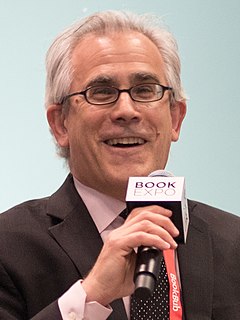A Quote by Stanley Hauerwas
The problem with the U.S. foreign policy is that we're just so unbelievably powerful. And when you've got that kind of power, it's very hard not to use it.
Quote Topics
Related Quotes
This is the problem with foreign policy - talking about foreign policy in a political context. Politics is binary. People win and lose elections. Legislation passes or doesn't pass. And in foreign policy often what you're doing is nuance and you're trying to prevent something worse from happening. It doesn't translate well into a political environment.
[On power:] Some people really have almost a disdain for that word. They feel it is alien to conscience. Power for power's sake, no. But the positive use of power for positive purposes is very important. You have to understand that. You've got to have a seat at the policy table if you want to make a difference.
If I were Donald Trump, I would definitely not pick Mitt Romney because it's very easy for Mitt Romney to have have a separate foreign policy operatus in the State Department that would run a dissenting foreign policy from the White House foreign policy. There, I think the populist America-first foreign policy of Donald Trump does run against a potential rival.
There are those who would draw a sharp line between power politics and a principled foreign policy based on values. This polarized view - you are either a realist or devoted to norms and values - may be just fine in academic debate, but it is a disaster for American foreign policy. American values are universal.
We look a little bit disorderly, indecisive, leaderless. That's a real problem, and that's a problem that concerns me particularly on foreign affairs. The presidency, not just President Obama, but the presidency in recent years has lost some of the terrain that they used to dominate in the making of foreign policy. I think President Obama has to make a serious effort to regain it because he lost some of it himself.







































